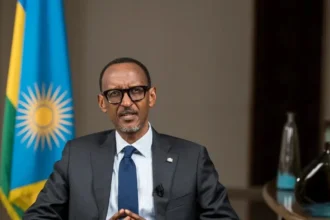A Monumental Investment in Ondo’s Industrial Future. BINL’s announcement marks a bold step toward reindustrializing Nigeria’s oil sector. The facility will be built within the Ilaje Industrial Free Zone in partnership with the Ondo State government through its investment arm, ONDIPA. The project’s goal is not only to meet domestic demand but to power downstream industries and serve regional export markets. The official Memorandum of Understanding (MoU) between BINL and the Ondo State government is scheduled for July 15, 2025. Negotiations are ongoing with the Nigerian National Petroleum Corporation (NNPC) to potentially join the project as a strategic partner.
The refinery’s construction will follow a phased approach: phase1 a 100,000 barrels per day unit, with a 4 year construction timeline , full capacity: gradual scale-up to 500,000 bpd and ancillary infrastructure: Includes storage tanks, loading terminals, road systems, and logistics facilities.
Nigeria’s second largest refinery after dangote
Once operational, the BINL refinery will rank just below the 650,000 bpd Dangote Refinery, inaugurated in 2023. While Dangote’s $20 billion facility faced pandemic-related delays, BINL is aiming for a leaner, more agile construction process. Targeted outputs: local supply, industrial feedstock, export revenues. According to BINL’s Vice President, Wale Adekola, the refinery is designed to: produce petrol, diesel, and aviation fuel for domestic consumption , supply petrochemical inputs to local manufacturing and create a pipeline for refined product exports, boosting foreign exchange earnings.
Financial structure still under wraps
BINL has yet to disclose how the $15 billion investment will be financed. The size of the project suggests a likely mix of private equity, government participation and potential international lending or guarantees. The clarity of financing will be a key determinant of the project’s pace and credibility.
BINL’s broader vision: $4 billion in mining to follow
This refinery is just one piece of a wider investment strategy. BINL plans to commit an additional $4 billion toward Nigeria’s underdeveloped mining sector, emphasizing public private partnerships to unlock value from local resources. If successful, the refinery could: Create thousands of jobs, catalyze local economic development, reduce Nigeria’s heavy reliance on imported refined fuel and enhance public revenue through taxes and royalties. Despite its promise, the initiative faces challenges typical of large-scale infrastructure projects in Nigeria: complex regulatory hurdles, history of project delays and political and economic volatility. The project’s success will depend on steady leadership, financial discipline, and institutional cooperation.
This $15 billion refinery project in Ondo is more than a pipeline of steel and oil. It represents a renewed commitment to economic self sufficiency, industrial rebirth, and local opportunity. While risks remain, BINL’s move could reframe Nigeria’s future as an energy power not just in crude, but in value added production.















